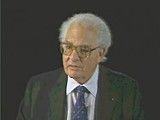You searched for: medical experiments
<< Previous | Displaying results 111-120 of 134 for "medical experiments" | Next >>
-
Kurt Gerstein
ArticleSS officer Kurt Gerstein was horrified by what he witnessed at the Belzec killing center. Learn about how he recorded what he witnessed and about his postwar fate.
-
Rene Slotkin describes experiencing antisemitism in school in postwar Kosice
Oral HistoryRene and his twin sister Irene were born Rene and Renate Guttman. The family moved to Prague shortly after the twins' birth, where they were living when the Germans occupied Bohemia and Moravia in March 1939. A few months later, uniformed Germans arrested their father. Decades later, Rene and Irene learned that he was killed in the Auschwitz camp in December 1941. Rene, Irene, and their thier mother were deported to the Theresienstadt ghetto, and later to Auschwitz. There, the twins were separated and…
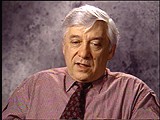
-
Irene Hizme describes life in a Catholic orphanage in postwar France
Oral HistoryIrene and her twin brother Rene were born Renate and Rene Guttmann. The family moved to Prague shortly after the twins' birth, where they were living when the Germans occupied Bohemia and Moravia in March 1939. A few months later, uniformed Germans arrested their father. Decades later, Irene and Rene learned that he was killed at the Auschwitz camp in December 1941. Irene, Rene, and their mother were deported to the Theresienstadt ghetto, and later to the Auschwitz camp. At Auschwitz, the twins were…
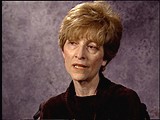
-
Hainewalde
ArticleThe SA established a protective custody camp at Hainewalde in March 1933. Well-known journalist and writer Axel Eggebrecht was among its early prisoners.
-
Glossary
ArticleAntisemitism: hostility toward or hatred of Jews as a religious or ethnic group, often accompanied by social, economic, or political discrimination. Appellplatz: German word for roll call square where prisoners were forced to assemble. Aryan: Term used in Nazi Germany to refer to non-Jewish and non-Roma (Gypsy) Caucasians. Northern Europeans with especially "Nordic" features such as blonde hair and blue eyes were considered by so-called race scientists to be the most superior of Aryans, members of a…
-
Nazi Camps
ArticleNazi Germany and its allies established over 44,000 concentration camps and incarceration sites during the Holocaust. Read about the Nazi camp system.
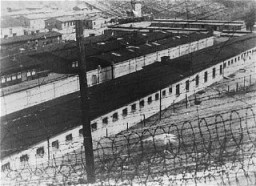
-
The Search for Perpetrators
ArticleThousands of Nazi criminals were never arrested. Learn more about the postwar efforts to bring Nazi perpetrators to justice.
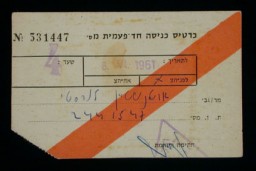
-
An Overview of the Holocaust: Topics to Teach
ArticleRecommended resources, topics, context, rationale, and critical thinking questions if you have limited time to teach about the Holocaust.
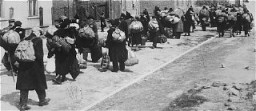
-
Moringen Youth Camp
ArticleThe Moringen camp was one of the so-called youth protection camps that the Nazi regime established for young people who were alleged to have strayed from Nazi norms and ideals.
-
Herbert A. Friedman describes finding two child survivors after liberation
Oral HistoryHerbert graduated from Yale in 1938. He became a rabbi and worked very closely with American Jewish leader Stephen S. Wise. He became a chaplain in the US Army during World War II. In the spring of 1945, he went to Europe. When the war ended, he was recruited by David Ben-Gurion into the Aliyah Bet ("illegal" immigration) operation of the Hagana. This involved smuggling Jews from eastern Europe through Germany to Palestine. He worked with displaced persons, mainly in Berlin and the American zone of…
